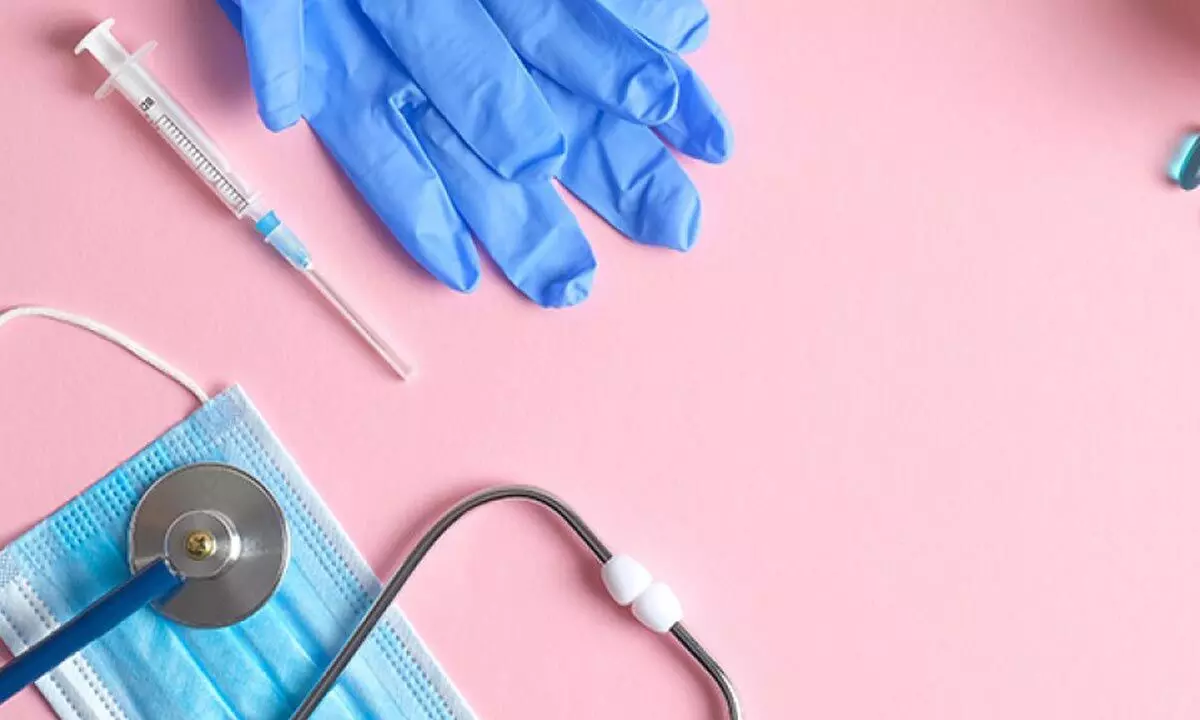Reconstitution of NMDPC, big positive for medical devices
It will go a long way in boosting the fledgling medical devices sector in the country
image for illustrative purpose

To reduce India's dependence on import of high-end medical devices, the Department of Pharmaceuticals (DoP) had recently released the draft National Policy for Medical Devices. By this policy, the government aims to reduce India's import dependence from the current 80 per cent to nearly 30 per cent in the next 10 years, and become one of the top five global manufacturing hubs for medical devices by the year 2047
The central government has recently reconstituted the National Medical Devices Promotion Council (NMDPC) to act as a facilitating and development body for the Indian medical devises industry. That the government attaches upmost importance to the council is clear from the fact that the reconstituted council will be headed by none other than the Secretary of the Department of Pharmaceuticals (DoP). The reconstitution comes after the Department for Promotion of Industry & Internal Trade (DPIIT) under the Union Ministry of Commerce and Industry, which was heading the Council since the inception of the Council, decided to hand over the onus to the DoP. DPIIT decided to hand over the onus to the DoP as the DoP has the mandate for the promotion of the medical devices industry and has created dedicated institutional mechanisms such as standing forum of medical device associations.
Joint Secretary, DoP, who is in charge of the medical devices division will be the convener of the council. Chairman of National Pharmaceutical Pricing Authority (NPPA), joint secretary DoP (in charge of NIPER division) and Advisor for Health, NITI Aayog, are the ex-officio members of the Council. Another eight ex-officio members would be one representative each, not below the rank of joint secretary or equivalent, from the Department of Health and Family Welfare, Department of Health Research, Department of Commerce, DPIIT, Drug Controller General (India) (DCGI), Secretary, Indian Pharmacopoeia Commission, Executive Director of Engineering Export Promotion Council of India (EEPC), and Kalam Institute of Health Technology, Andhra Pradesh.
To make the council a comprehensive one, the government has made all the major industry associations part of the council. The representatives from the medical devices industry associations including Association of Indian Medical Device Industry (AiMeD), Association of Diagnostics Manufacturers of India (ADMI), Medical Technology Association of India (MTAI), Medical Devices wings of Federation of Indian Chambers of Commerce and Industry (FICCI), the Confederation of Indian Industry (CII), Advanced Medical Technology Association (ADVAMED) etc., would be nominated as members by the DoP. Besides, the joint secretary or equivalent from the departments of the Ministry of Environment, Forest and Climate change, Department for BioTechnology, Ministry of Electronics and Information Technology, Ministry of Micro, Small and Medium Enterprises, animal husbandary and dairying, consumer affairs, Telecommunications revenue, etc. Representatives from Atomic Energy Regulatory Board (AERB), Bureau of Indian Standard, CEOs of National Accreditation Board for Testing and Calibration Laboratories (NABL), National Accreditation Board for Certification Bodies (NABCB), Government E Marketplace (GeM), and Quality Control India and technical experts in the field of medical devices, are co-opted as and when required to deliberate on specific issues.
Of course, the reconstitution of the council will go a long way in boosting the fledgling medical devices sector in the country as it will help to build synergies in the efforts of various departments in view of the diversity and multi-disciplinary nature of the sector to harness the potential of the Indian medical devices sector; to hold seminars, workshops and related networking activities to garner the views of the industry; and to further strengthen the institutional mechanisms established by the DoP such as Standing Forum of Medical Device Association and Regulatory Roundtable meetings to deliberate on the issues put forth by the industry for resolution. The council will also support dissemination and documentation of international norms and standards for medical devices by capturing the best practices in the global market and facilitate domestic manufacturers to rise to international level of regulatory and non-regulatory needs of the industry. It will also deliberate on various issues related to public procurement of medical devices under the Public Procurement Order (Make in India) Policy of DPIIT with the goal to encourage investment and domestic manufacturing in all categories of medical devices. The NMDPC will have the objective to act as a facilitating and development body for the Indian medical technology industry, to achieve the objectives envisaged under the proposed National Medical Devices Policy, 2022. It may be noted here that to reduce India's dependence on import of high-end medical devices, the Department of Pharmaceuticals (DoP) had recently released the draft National Policy for Medical Devices. By this policy, the government aims to reduce India's import dependence from the current 80 per cent to nearly 30 per cent in the next 10 years, and become one of the top five global manufacturing hubs for medical devices by the year 2047 when the country celebrated 100 years of Independence.
(The author is freelance journalist with varied experience in different fields)

